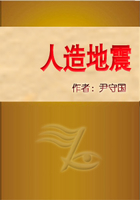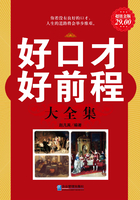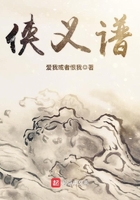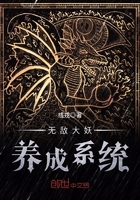THE MESA was like a ship becalmed in a strait of lion-coloured dust. The channel wound between precipitous banks, and slanting from one wall to the other across the valley ran a streak of green-the river and its fields. On the prow of that stone ship in the centre of the strait, and seemingly a part of it, a shaped and geometrical outcrop of the naked rock, stood the pueblo of Malpais. Block above block, each story smaller than the one below, the tall houses rose like stepped and amputated pyramids into the blue sky. At their feet lay a straggle of low buildings, a criss-cross of walls; and on three sides the precipices fell sheer into the plain. A few columns of smoke mounted perpendicularly into the windless air and were lost.
“Queer,” said Lenina. “Very queer.” It was her ordinary word of condemnation. “I don’t like it. And I don’t like that man.” She pointed to the Indian guide who had been appointed to take them up to the pueblo. Her feeling was evidently reciprocated; the very back of the man, as he walked along before them, was hostile, sullenly contemptuous.
“Besides,” she lowered her voice, “he smells.”
Bernard did not attempt to deny it. They walked on.
Suddenly it was as though the whole air had come alive and were pulsing, pulsing with the indefatigable movement of blood. Up there, in Malpais, the drums were being beaten. Their feet fell in with the rhythm of that mysterious heart; they quickened their pace. Their path led them to the foot of the precipice. The sides of the great mesa ship towered over them, three hundred feet to the gunwale.
“I wish we could have brought the plane,” said Lenina, looking up resentfully at the blank impending rock-face. “I hate walking. And you feel so small when you’re on the ground at the bottom of a hill.”
They walked along for some way in the shadow of the mesa, rounded a projection, and there, in a water-worn ravine, was the way up the companion ladder. They climbed. It was a very steep path that zigzagged from side to side of the gully. Sometimes the pulsing of the drums was all but inaudible, at others they seemed to be beating only just round the corner.
When they were half-way up, an eagle flew past so close to them that the wind of his wings blew chill on their faces. In a crevice of the rock lay a pile of bones. It was all oppressively queer, and the Indian smelt stronger and stronger. They emerged at last from the ravine into the full sunlight. The top of the mesa was a flat deck of stone.
“Like the Charing-T Tower,” was Lenina’s comment. But she was not allowed to enjoy her discovery of this reassuring resemblance for long. A padding of soft feet made them turn round. Naked from throat to navel, their dark brown bodies painted with white lines (“like asphalt tennis courts,” Lenina was later to explain), their faces inhuman with daubings of scarlet, black and ochre, two Indians came running along the path. Their black hair was braided with fox fur and red flannel. Cloaks of turkey feathers fluttered from their shoulders; huge feather diadems exploded gaudily round their heads. With every step they took came the clink and rattle of their silver bracelets, their heavy necklaces of bone and turquoise beads. They came on without a word, running quietly in their deerskin moccasins. One of them was holding a feather brush; the other carried, in either hand, what looked at a distance like three or four pieces of thick rope. One of the ropes writhed uneasily, and suddenly Lenina saw that they were snakes.
The men came nearer and nearer; their dark eyes looked at her, but without giving any sign of recognition, any smallest sign that they had seen her or were aware of her existence. The writhing snake hung limp again with the rest. The men passed.
“I don’t like it,” said Lenina. “I don’t like it.”
She liked even less what awaited her at the entrance to the pueblo, where their guide had left them while he went inside for instructions. The dirt, to start with, the piles of rubbish, the dust, the dogs, the flies. Her face wrinkled up into a grimace of disgust. She held her handkerchief to her nose.
“But how can they live like this?” she broke out in a voice of indignant incredulity. (It wasn’t possible.)
Bernard shrugged his shoulders philosophically. “Anyhow,” he said, “they’ve been doing it for the last five or six thousand years. So I suppose they must be used to it by now.”
“But cleanliness is next to fordliness,” she insisted.
“Yes, and civilization is sterilization,” Bernard went on, concluding on a tone of irony the second hypnop?dic lesson in elementary hygiene. “But these people have never heard of Our Ford, and they aren’t civilized. So there’s no point in…”
“Oh!” She gripped his arm. “Look.”
An almost naked Indian was very slowly climbing down the ladder from the first-floor terrace of a neighboring house–rung after rung, with the tremulous caution of extreme old age. His face was profoundly wrinkled and black, like a mask of obsidian. The toothless mouth had fallen in. At the corners of the lips, and on each side of the chin, a few long bristles gleamed almost white against the dark skin. The long unbraided hair hung down in grey wisps round his face. His body was bent and emaciated to the bone, almost fleshless. Very slowly he came down, pausing at each rung before he ventured another step.
“What’s the matter with him?” whispered Lenina. Her eyes were wide with horror and amazement.
“He’s old, that’s all,” Bernard answered as carelessly as he could. He too was startled; but he made an effort to seem unmoved.
“Old?” she repeated. “But the Director’s old; lots of people are old; they’re not like that.”
“That’s because we don’t allow them to be like that. We preserve them from diseases. We keep their internal secretions artificially balanced at a youthful equilibrium. We don’t permit their magnesium-calcium ratio to fall below what it was at thirty. We give them transfusion of young blood. We keep their metabolism permanently stimulated. So, of course, they don’t look like that. Partly,” he added, “because most of them die long before they reach this old creature’s age. Youth almost unimpaired till sixty, and then, crack! the end.”














